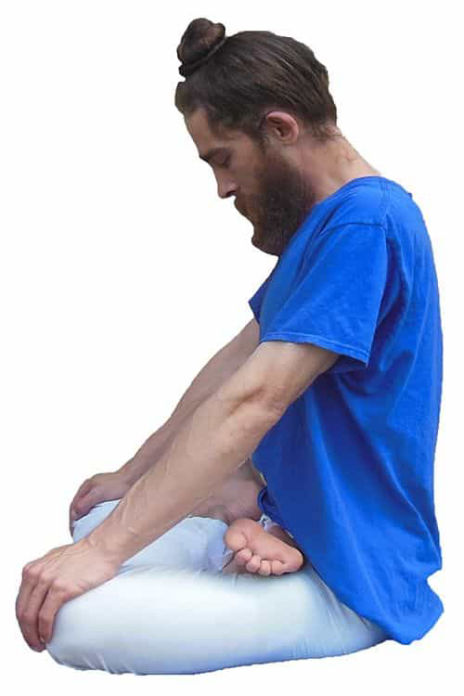Practice

Jalandhara Bandha
In Sanskrit, Jal means "throat," Dharan means "stream" and Bandha means "to lock," "to hold," or "to tighten," therefore this practice is known as the throat lock.
This practice engages the throat, toning the muscles of the neck and stimulating the Vishuddhi Chakra. This is one of ten Mudra practices that are said to destroy old age and death as well as giving divine wealth.
In Sanskrit, Shiva refers to the Supreme Consciousness and Granthi means "knot." This knot is associated with Vishuddhi Chakra and Ajna Chakra and is known as Shiva Granthi. These two Chakras sustain the Vijnanamaya Kosha meaning "the wisdom" or "intellect body."
When this knot is released, the individuality dissolves, the egoic identification dissolves and the experience of the unmanifested Consciousness emerges to Ajna Chakra and Sahasrara Chakra.
Practice

Practice - Variation 2
The six cleansing actions are intended to be the start of a Yoga practice in order to clean, strengthen, remove toxins and improve the flow of Prana through out the practitioner.
Yoga poses help to elongate and strengthen the muscles of the body as well as to calm the mind for the deeper spiritual practices of Yoga.
Breathing exercises are a great practice to remove carbon dioxide, increase lung capacity as well as being a good preparatory practice for the deepest spiritual practice of Yoga, Meditation.
The four body locks that makes up this practice give the practitioner the ability to hold or lock Prana in certain locations of the body. These practices also allow the practitioner to release blockages that may be holding the practitioner back.
The gestures in this practice include the whole body and are intended to awaken Prana, Chakras as well as Kundalini energy within the practitioner.
Meditation is the highest spiritual practice of Yoga which is why this practice is the most difficult practice to preform, but with correct knowledge and dedication, can be the most profound practice of Yoga.